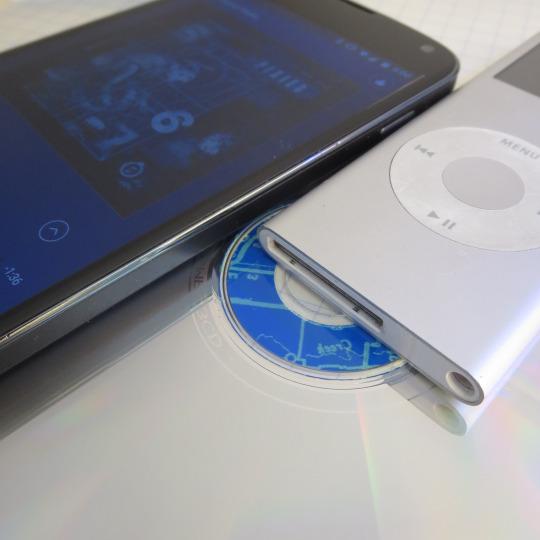
Good news, everyone! The recording industry no longer thinks the Internet will kill it.
“The wholesale value of the American music business continues to grow — a 2% uptick this year,” wrote Recording Industry Association of America (RIAA) chairman Cary Sherman in a March 18 blog post heralding the RIAA’s sales and revenue data for 2014. He noted that this was “the fourth straight year of such growth,” although retail sales edged slightly down.
A week later, Joshua Friedlander, the RIAA’s senior vice president for strategic data analysis, wrote a separate post breaking out more good news from those 2014 figures.
“The split between revenues from digital, streaming, and physical formats have never been more balanced,” he wrote. CDs and vinyl now constitute less than one-third of total revenues of $4.86 billion wholesale, $6.97 billion retail. “While it’s true revenues from music are not as high as they once were, overall the industry is now in a more healthy and stable place.”
Independent-music advocates also agree that industry has gotten better. (At the same time, they object to the falling incomes that individual artists see.)
“The past couple of years have at least been somewhat predictable,” wrote Kristin Thomson, co-director of the Future of Music Coalition’s Artist Revenue Streams project (before then, co-owner of the Simple Machines label and guitarist for the indie-rock band Tsunami). “The various download, streaming and webcasting platforms are mature enough.”
Shine on You Crazy Diamond
Was this rebound of the music industry by the design of its largest organizing group? Hardly. Twenty years ago, when digital music came on to the scene, the Washington-based organization had specific ideas about online music, and no gadget playing “unprotected” files, as they all do today, played a part.
The RIAA sued to block the Diamond Rio MP3 player, arguing that it violated the Audio Home Recording Act of 1992. “This device would enable anyone to copy anything they want off the Net,” Sherman told The New York Times in 1998.
Fortunately, the RIAA lost. A three-judge panel ruled that “space-shifting” a song from a CD to a computer to an MP3 player was legal.
So the industry tried to block the distribution of shareable files. And that scheme, the concept of securing online music with “digital rights management” (DRM) copying restrictions, took longer to die. The first non-Apple music stores were outright listener-abusive. The RIAA’s ambitious Secure Digital Music Initiative project did sink, eventually, due to its own unworkability.
Even Apple’s successful experiment with looser but still restrictive DRM on the iTunes Store couldn’t last. Steve Jobs professed distaste for DRM, and Amazon moved in 2007 to sell only standard MP3s.
Manic Depression
Still, the RIAA stuck to its story line: The music business faced an existential threat from unauthorized downloads and copies. The chorus: How can we compete with free?
The industry thought peer-to-peer (P2P) networks like Napster (and imitators that sprouted up after it sued Napster into oblivion) posed so much of a problem that it filed thousands of lawsuits against listeners for allegedly uploading songs to them.
That campaign arguably worked. The Pew Internet & American Life Project found in 2004 that 6 million Americans gave up P2P downloads as a result.
Then, in 2011, the RIAA strongly endorsed the Stop Online Piracy Act (SOPA), arguing that SOPA would thwart “illegal downloads that pay nothing to creators and result in thousands of lost jobs and fewer opportunities for aspiring musicians.”
Outrage over the idea of twisting core Internet frameworks into a copyright-policing mechanism doomed that bill. The RIAA persisted. As recently as May of 2013, an RIAA blog post declared that “the burden on content creators is heavier now than it has ever been.”
Getting Better
I hear a different tune from the association today.
“We are focused on the future of the business,” communications vice president Jonathan Lamy said Monday. “Piracy is not what it once was three to five years ago.”
Primary credit for that change goes not to DRM, lobbying, or lawsuits, but to all the ways we now have to discover music.
Want to hear a particular song? Cue it up on Spotify for free. Want to buy it in a form that plays on all your devices? That’ll be $1 or so. Feel guilty about MP3s you grabbed off BitTorrent? Trade them in for legitimate, higher-quality downloads using Apple’s $25 iTunes Match — or the free version of Google’s Play Music. Want unlimited music to stream or play on your devices, for a fair monthly fee? We have so many streaming services that it’s hard to choose among them.
You could clap with one hand, as one longtime RIAA critic did Monday.
“It’s great that the RIAA has finally realized that embracing what music fans have always wanted — and what the Internet has enabled — is a good way forward,” wrote Techdirt publisher Mike Masnick. “It’s too bad that it had to come after decades of fighting each and every advancement.”
I can’t argue with that.
But music is not the only media. Now we can look at other industries that have clung even more stubbornly to DRM and old business models, like movies and books, and ask if they can’t learn from this.
If the music industry, the one with the product that’s easiest to copy and share, can make this digital transition without DRM or sweeping new laws, what’s holding them back? [Yahoo!]

